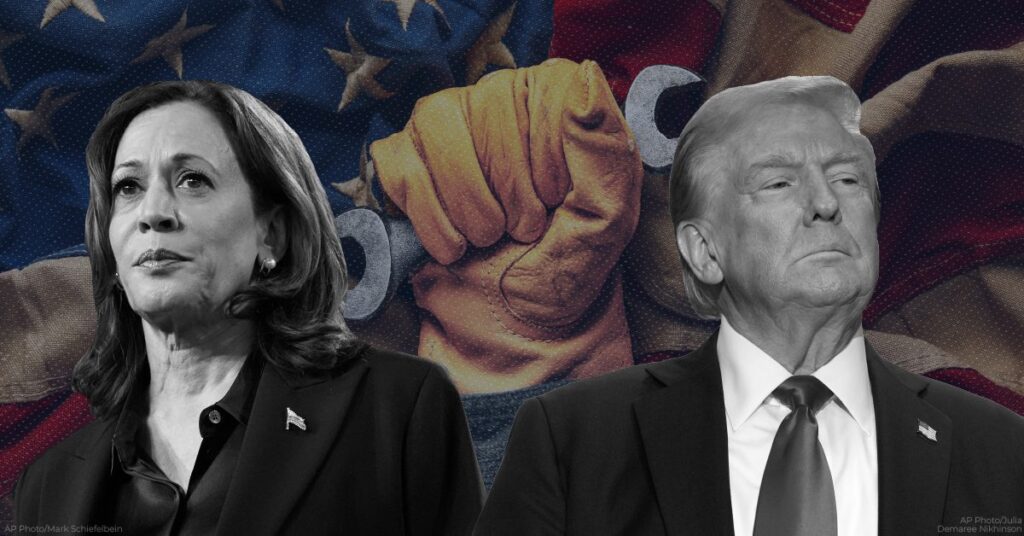Harris Pledges Worker Rights Expansion, Trump Proposes Tariffs
As Election Day approaches, voters highlight the economy as a key issue. Kamala Harris and Donald Trump offer contrasting economic visions. Harris focuses on strengthening workers’ rights and raising the minimum wage. Trump plans to impose tariffs and repeal clean energy investments, potentially leading to job losses.
The candidates present different approaches to issues like childcare, groceries, housing, and tax policy, as well as their strategies for small business support.
Harris Advocates for Workers’ Rights and Economic Support
Harris has committed to passing the PRO Act, empowering workers to organize and collectively bargain. Supported by major unions, this act would penalize companies that interfere with union rights. Harris also proposes expanding the Earned Income Tax Credit, benefiting working-class Americans.
To promote opportunities for non-college graduates, Harris plans to remove unnecessary degree requirements for federal jobs. Her campaign highlights skills gained through community colleges and apprenticeships.
Harris also aims to improve education and childcare, allowing workers to focus on their jobs. She supports raising the minimum wage and eliminating sub-minimum wages.
Trump’s Economic Policies and Impact
Trump proposes tariffs on imports, including a 60% tariff on Chinese goods, to encourage domestic production. However, economists warn these measures could cost 70,000 jobs monthly. His reshoring plan aims to reduce reliance on China.
Despite his claims to protect workers, Trump’s past policies encouraged outsourcing through tax breaks on foreign profits. During his presidency, approximately 200,000 jobs were offshored.
Trump’s proposal to repeal clean energy investments could lead to job losses in sectors boosted by current administration policies. United Auto Workers President Shawn Fain warned this could threaten auto industry jobs.
Alongside Harris, Trump supports eliminating taxes on tips for service workers. However, his previous administration’s actions included reducing overtime pay eligibility and opposing a $15 minimum wage.





